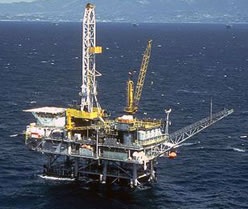
...as forex measures raise construction risk
CAL Bank says it will focus its energies on financing deals in the energy, oil and gas and telecom sectors of the economy this year, as it gets more cautious about lending to construction and real-estate, which have been hit by the central bank’s forex directives.
“There are areas in the economy where we want to focus on -- like the energy, telecoms, and oil and gas sectors. The construction and real-estate sector has come to a halt because it is a sector dominated by foreign currency. With the foreign exchange directives from the central bank, it means the sector must realign itself and, in the process of realigning, financiers are being cautious,” said Philip Owiredu, Chief Financial Officer of the bank.
Speaking at Facts behind the Figures, the Ghana Stock Exchange (GSE)’s forum for listed companies to interact with investors, Mr. Owiredu added that the bank will adopt strict risk-management discipline to mitigate challenges in the business environment and sustain its strong financial performance.
He said the bank’s first quarter performance was commendable, with total assets and profit after tax growing 33 percent and 37 percent respectively over the previous year. The bank’s profit, which rose to GH¢29.2million, was enhanced by well-controlled costs as the cost-to-income ratio fell for the third consecutive quarter to 31 percent.
The bank, Mr. Owiredu said, will increase its visibility through the roll-out of additional branches this year and grow retail deposits through promotions. In the year ahead, the bank will rigorously enforce measures to keep its NPLs within the industry average.
The banker said it appears the central bank’s interventions in the foreign exchange market are working, but added he couldn’t tell if the measures will ultimately halt the cedi’s fall.
“If we look at the figures from the first quarter, when the cedi depreciated by about 17 percent, now the depreciation is as low as 1.5 percent. If you look at it from that angle, then the measures are working; but as to whether it will hold in the long-term will depend on what people’s perceptions are and whether the systems put in place will allow people to have access to foreign currency to carry out their transactions.
“But I think we should also understand that the fiscal side is key. The challenges we have on the fiscal side are also impacting on the situation. Revenue generation must be stepped up, with inflation and interest rates curbed so that the currency can be stabilised.”